Data Science and Machine Learning Internship ...
- 22k Enrolled Learners
- Weekend/Weekday
- Live Class
We live in a data-driven world. In fact, the amount of digital data that exists is growing at a rapid rate, doubling every two years, and changing the way we live. Now that Hadoop and other frameworks have resolved the problem of storage, the main focus on data has shifted to processing this huge amount of data. When we talk about data processing, Data Science vs Big Data vs Data Analytics are the terms that one might think of and there has always been a confusion between them.
In this article on Data science vs Big Data vs Data Analytics, I will be covering the following topics in order to make you understand the similarities and differences between them.
Let’s begin by understanding the terms Data Science vs Big Data vs Data Analytics.
Data Science is a blend of various tools, algorithms, and machine learning principles with the goal to discover hidden patterns from the raw data.
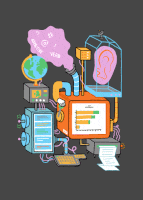
It also involves solving a problem in various ways to arrive at the solution and on the other hand, it involves designing and constructing new processes for data modeling and production using various prototypes, algorithms, predictive models, and custom analyses. You can also predict the growth of the business by incorporating data science techniques in operations in the coming years, anticipate the potential for problems, and develop strategies based on data to achieve success. This is the best opportunity to kick off your career in the field of data science by taking the Data Science Course.
Big Data refers to the large amounts of data that is pouring in from various data sources and has different formats. It is something that can be used to analyze the insights which can lead to better decisions and strategic business moves.
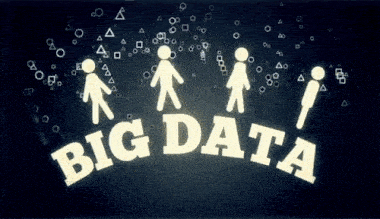
Data Analytics is the science of examining raw data with the purpose of drawing conclusions about that information. It is all about discovering useful information from the data to support decision-making. This process involves inspecting, cleansing, transforming & modeling data.
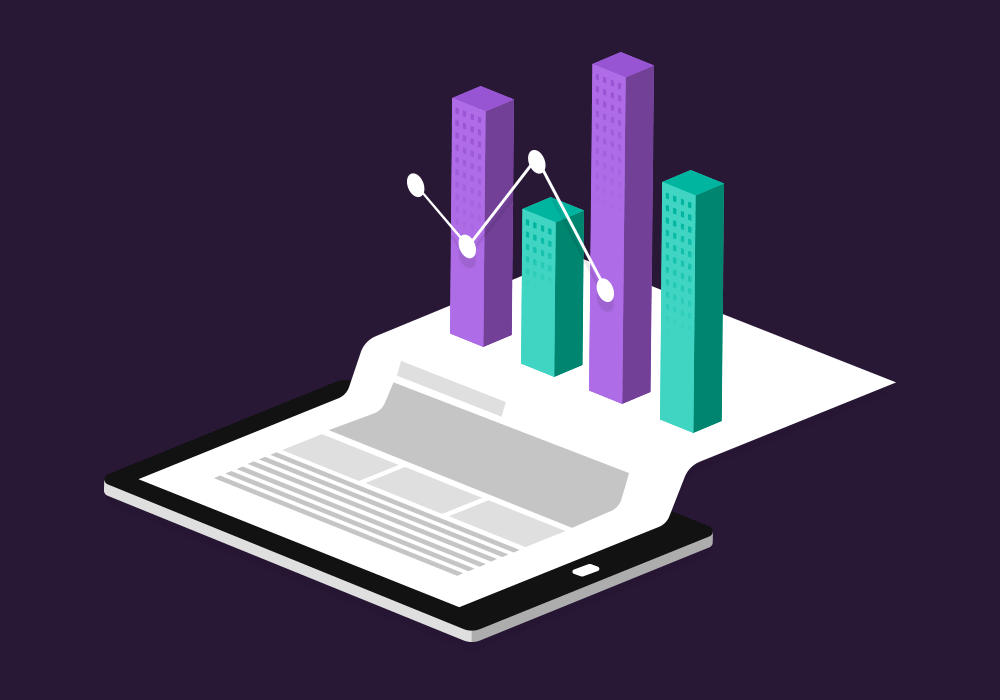
Subscribe to our YouTube channel to get new updates...
Data Scientists perform an exploratory analysis to discover insights from the data. They also use various advanced machine learning algorithms to identify the occurrence of a particular event in the future. This involves identifying hidden patterns, unknown correlations, market trends and other useful business information.

The responsibilities of big data professional lies around dealing with huge amount of heterogeneous data, which is gathered from various sources coming in at a high velocity.

Big data professionals describe the structure and behavior of a big data solution and how it can be delivered using big data technologies such as Hadoop, Spark, Kafka etc. based on requirements.
Data analysts translate numbers into plain English. Every business collects data, like sales figures, market research, logistics, or transportation costs. A data analyst’s job is to take that data and use it to help companies to make better business decisions. Data Analyst Course will help you to become a certified Data Analyst.

| Data Scientist | Big Data Professional | Data Analyst |
| Statistical & Analytical Skills | Technologies like Hadoop, Spark, Hive etc | Data Warehousing |
| Data Mining Activities | Working with unstructured data | Hadoop Based Analytics |
| Co-relation | General Purpose Programming | Adobe & Google Analytics |
| Machine Learning | SQL/Database coding | Programming skills |
| Deep Learning principles | Familiarity with MATLAB | Scripting & Statistical skills |
| In depth knowledge of programming | Creativity | Reporting with data visualization software |
| SQL/Database coding | Business skills | SQL/Database coding |
| SAS/R Coding | Data visualization | Spread-Sheet Knowledge |
The below figure shows the average salary structure of Data Scientists, Big Data specialists, and Data, Analysts.
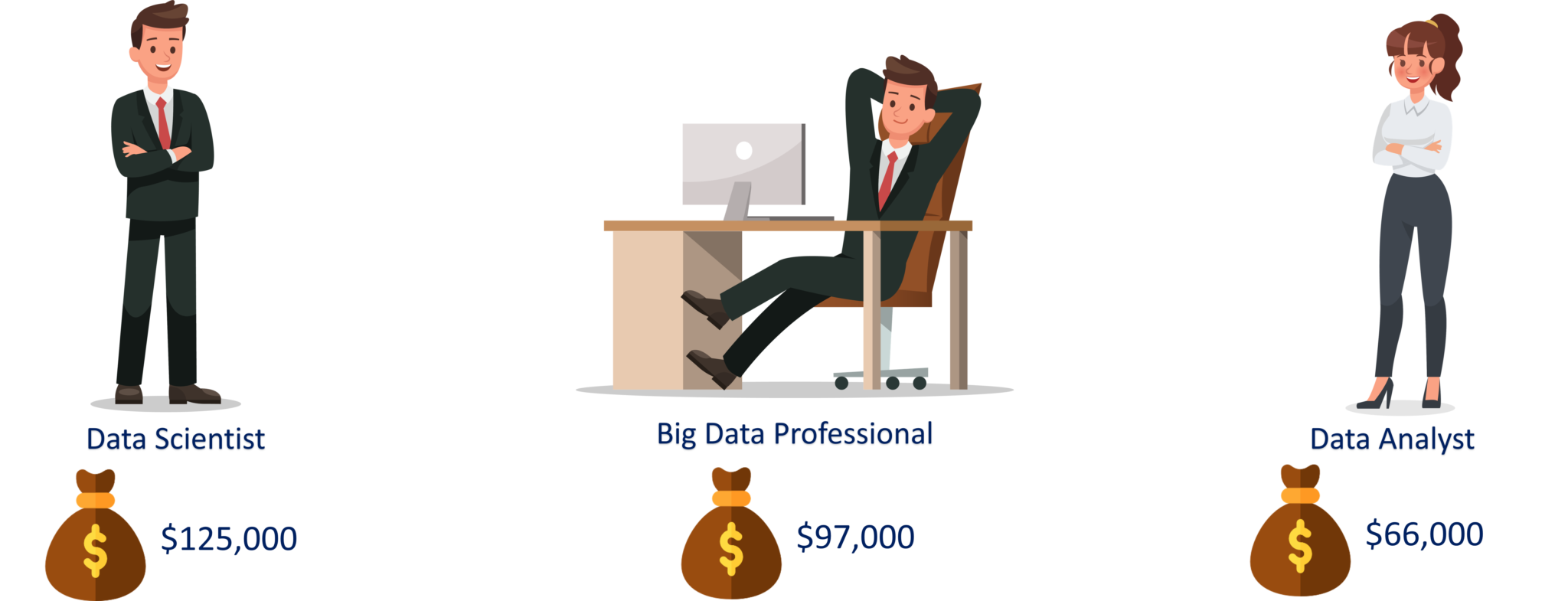
Now, let’s try to understand how can we garner benefits by combining all three of them together.
Let’s take the example of Netflix and see how they join forces in achieving the goal.
First, let’s understand the role of Big Data professionals in Netflix’s example.
Netflix generates a huge amount of unstructured data in form of text, audio, video files, and many more. If we try to process this dark (unstructured) data using the traditional approach, it becomes a complicated task.
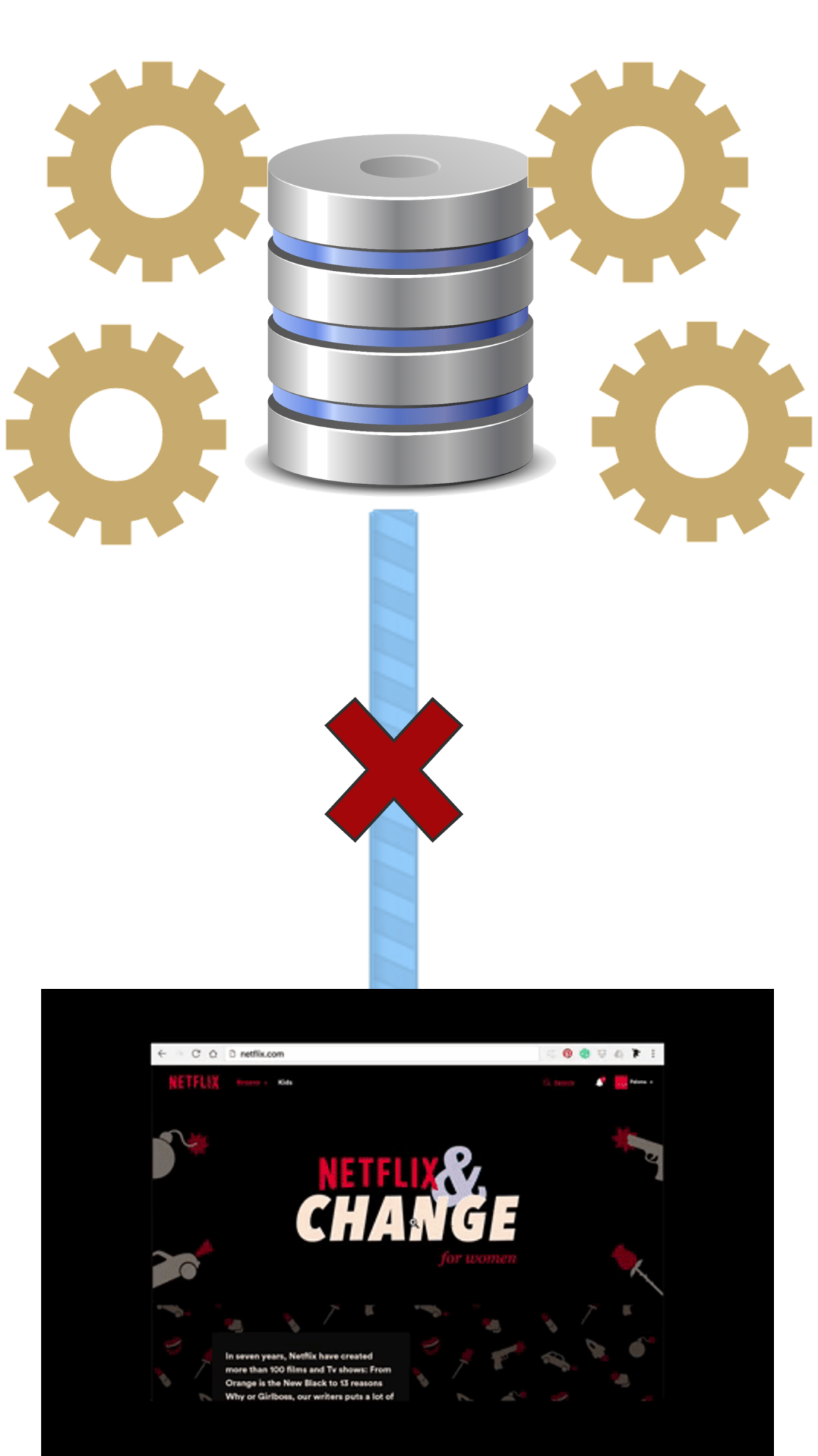
Hence a Big Data Professional designs and creates an environment using Big Data tools to ease the processing of Netflix Data.
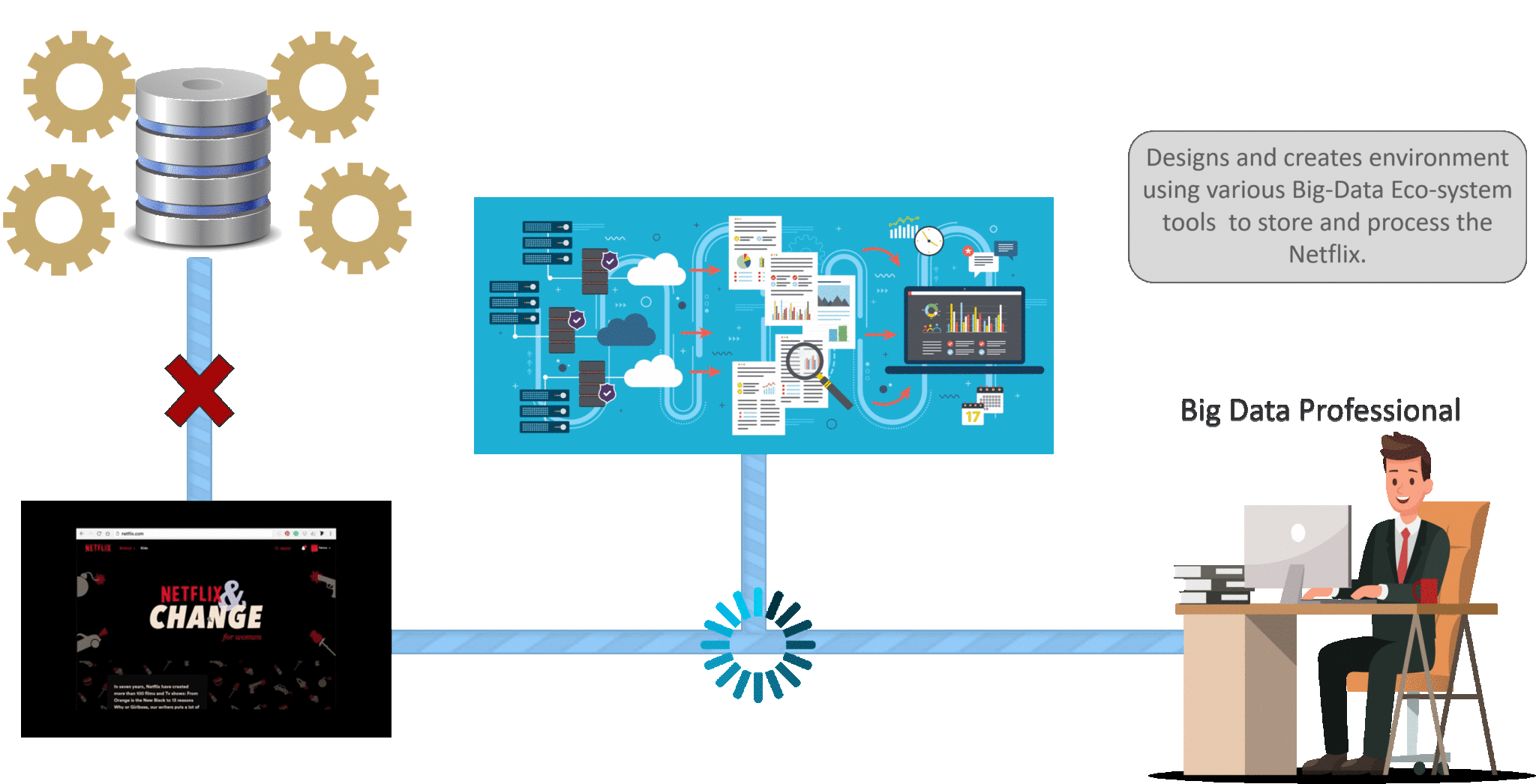
Now, let’s see how Data scientists Optimize the Netflix Streaming experience.
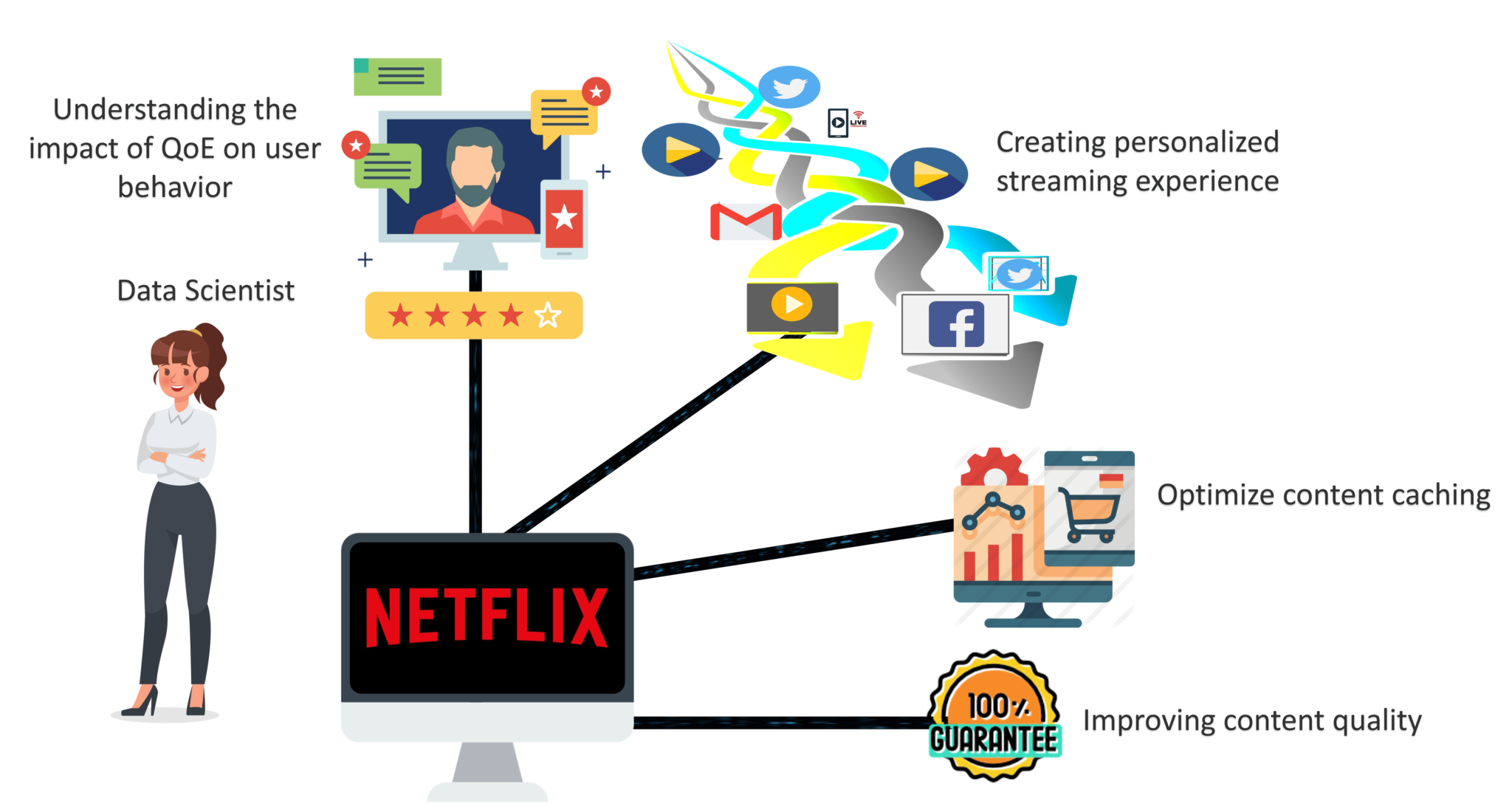
User behavior refers to the way how a user interacts with the Netflix service, and data scientists use the data to both understand and predict behavior. For example, how would a change to the Netflix product affect the number of hours that members watch? To improve the streaming experience, Data Scientists look at QoE metrics that are likely to have an impact on user behavior. One metric of interest is the rebuffer rate, which is a measure of how often playback is temporarily interrupted. Another metric is bitrate, which refers to the quality of the picture that is served/seen — a very low bitrate corresponds to a fuzzy picture. Learn more about Big Data and its applications from the Azure Data Engineering Certification in India.
How do Data Scientists use data to provide the best user experience once a member hits “play” on Netflix?
One approach is to look at the algorithms that run in real-time or near real-time once playback has started, which determine what bitrate should be served, what server to download that content from, etc.
For example, a member with a high-bandwidth connection on a home network could have very different expectations and experiences compared to a member with low bandwidth on a mobile device on a cellular network.
By determining all these factors one can improve the streaming experience.
A set of big data problems also exists on the content delivery side.
The key idea here is to locate the content closer (in terms of network hops) to Netflix members to provide a great experience. By viewing the behavior of the members being served and the experience, one can optimize the decisions around content caching.
Another approach to improving user experience involves looking at the quality of content, i.e. the video, audio, subtitles, closed captions, etc. that are part of the movie or show. Netflix receives content from the studios in the form of digital assets that are then encoded and quality checked before they go live on the content servers.
In addition to the internal quality checks, Data scientists also receive feedback from our members when they discover issues while viewing.
By combining member feedback with intrinsic factors related to viewing behavior, they build the models to predict whether a particular piece of content has a quality issue. Machine learning models along with natural language processing (NLP) and text mining techniques can be used to build powerful models to both improve the quality of content that goes live and also use the information provided by the Netflix users to close the loop on quality and replace content that does not meet the expectations of the users.
So this is how Data Scientist optimizes the Netflix streaming experience.
Learn more about Big Data and its applications from the Azure Data Engineer Certification Course.
Now let’s understand how Data Analytics is used to drive the Netflix success.
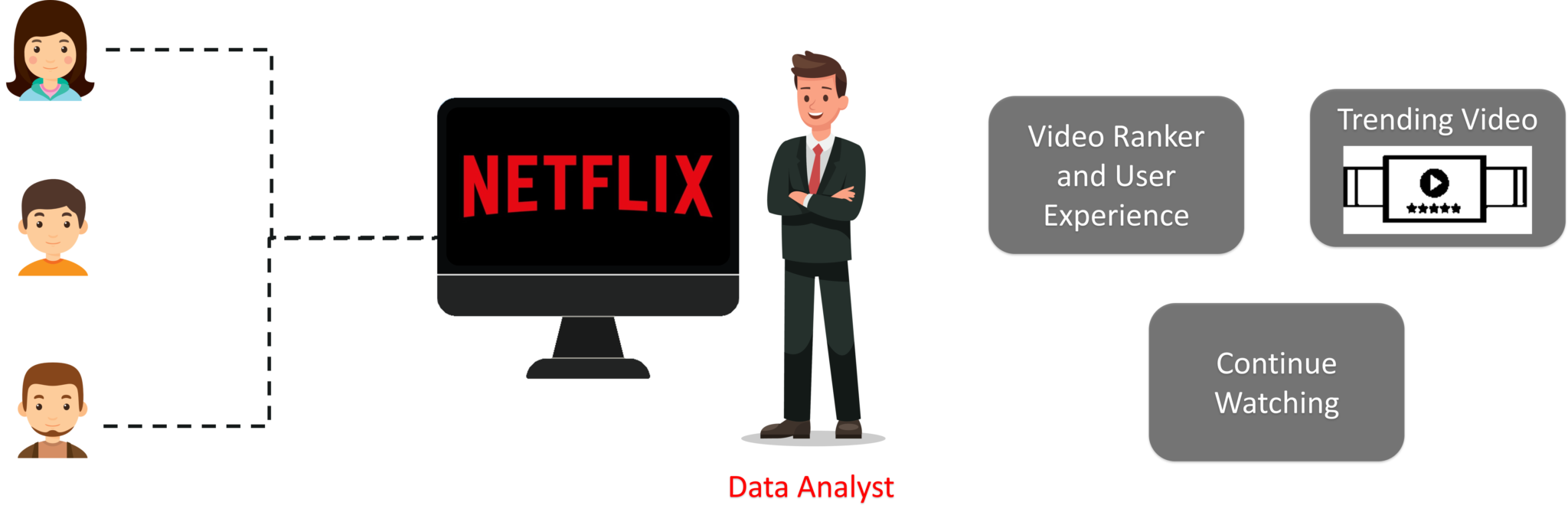
The above figure shows the different types of users who watch the video/play on Netflix. Each of them has their own choices and preferences.
So what does a Data Analyst do?
Data Analyst creates a user stream based on the preferences of users. For example, if user 1 and user 2 have the same preference or a choice of video, then data analyst creates a user stream for those choices. And also –
I hope you have understood the differences & similarities between Data Science vs Big Data vs Data Analytics.
The need for Data Science with Python programming professionals has increased dramatically, making this course ideal for people at all levels of expertise. The Data Science with Python Course is ideal for professionals in analytics looking to work in conjunction with Python, Software, and IT professionals interested in the area of Analytics and anyone with a passion for Data Science.
Now that you have understood The features and roles of data science, big data, and data analytics, check out Hadoop training in Dallas by Edureka, a trusted online learning company with a network of more than 250,000 satisfied learners spread across the globe. The Edureka Big Data Hadoop Certification Training course helps learners become experts in HDFS, Yarn, MapReduce, Pig, Hive, HBase, Oozie, Flume, and Sqoop using real-time use cases on Retail, Social Media, Aviation, Tourism, Finance domains.
Also, If you are looking for online structured training in Data Science, edureka! has a specially curated Data Science Course that helps you gain expertise in Statistics, Data Wrangling, Exploratory Data Analysis, and Machine Learning Algorithms like K-Means Clustering, Decision Trees, Random Forest, and Naive Bayes. You’ll also learn the concepts of Time Series, Text Mining, and an introduction to Deep Learning. New batches for this course are starting soon!!
Got a question for us? Please mention it in the comments section of the “Data Science vs Big Data vs Data Analytics” article and we will get back to you.
| Course Name | Date | Details |
|---|---|---|
| Data Science with Python Certification Course | Class Starts on 27th April,2024 27th April SAT&SUN (Weekend Batch) | View Details |
| Data Science with Python Certification Course | Class Starts on 25th May,2024 25th May SAT&SUN (Weekend Batch) | View Details |
 REGISTER FOR FREE WEBINAR
REGISTER FOR FREE WEBINAR  Thank you for registering Join Edureka Meetup community for 100+ Free Webinars each month JOIN MEETUP GROUP
Thank you for registering Join Edureka Meetup community for 100+ Free Webinars each month JOIN MEETUP GROUP
edureka.co
